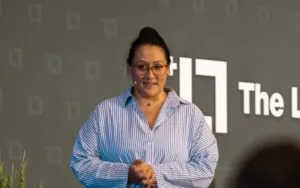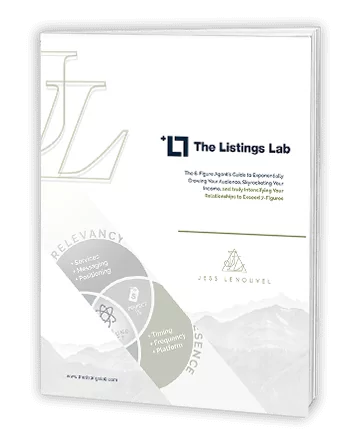Hiring for your real estate business?
Make sure you do so with intentionality.
Building a real estate team can be a fantastic business model, but it’s not always as easy as people make it seem.
There’s a lot that goes into hiring solid team members who will stick around for the long run.
When you rush the hiring process or make some of these common mistakes, you’ll only create MORE work for yourself rather than less.
Employees who need a lot of hand-holding, high turnover, and depleting your cash reserves are just a few of the negative consequences that come with a lack of preparation when it comes to hiring for your real estate business.
So let’s dive into these real estate hiring mistakes so you can avoid them – and instead build a team that helps you scale to seven figures.
3 Real Estate Hiring Mistakes to Avoid
Here are three of the most significant mistakes you should watch out for when hiring for your real estate business. Read through these mistakes carefully, because they can cause major harm to your real estate growth!
Hiring Too Soon
Hiring is one of the easiest and best ways to scale your business. But don’t hire until you’ve worn all the hats and are familiar with every single aspect of your business. Hiring too soon will eat up your cash reserves because you don’t actually understand every part of your business well enough to bring in someone else to handle parts of it. That means you won’t know how to direct them in the right way.
For instance, you need to understand marketing before you can outsource it. If you don’t you’ll end up with people who perform poorly, and you won’t be clear on what to do about it.
When you find that you’re stuck in a hamster wheel and relatively maxed out, it’s time to do an Energy Audit—looking at your daily tasks to determine what roles to hire for first. Again, only hire when you’ve identified the things you want and need off your plate.
Not Hiring Based On ROI
You won’t have to worry about your expenses growing before your revenue does if you don’t hire too quickly and if you delegate appropriately.
Every person you bring onto your team should have an ROI, and they should know and understand what their expected ROI over time is.
Even an assistant will add a certain amount of money to your bottom line if they’re freeing you up for income-generating activities. The rule of thumb is that if you pay an assistant $40,000 per year, they should be adding a minimum of $60,000 per year to the bottom line.
Not Hiring In The Right Order
It will become clear whom you need and when. When you do a full Energy Audit, you’ll start seeing things that are outside your Kinetic Domain taking up your time and energy. That’s when you know it’s time to look for either software or a person who can take these tasks off your plate and start owning those outcomes.
First Hire: A Part-time Real Estate Virtual Assistant (VA) Or Contractor
I recommend that your first hire be a part-time virtual assistant (VA) or a contractor who does small, routine admin tasks. Delegating these tasks can free up anywhere from ten to thirty hours of your time per week. There are a lot of VA sourcing companies you can enlist for help; get a referral for a high-quality option.
Second Hire: Full-time Virtual Contractors & Administrators
From there, you can progress to taking on full-time virtual contractors. They’re typically young people or hustling work-from-home moms who will do whatever’s necessary to get the job done and move the needle forward. You might not have these roles really well defined until you see what you need done.
But don’t mistake a virtual jack-of-all-trades who is in a more entry-level position for someone who’s not an A-player. Their level also doesn’t mean your expectations should be less.
Some of these contractors are likely to get a look at your systems and help you revamp some things along the way. In that case, you might bump them from being a part-time VA to your full-time administrator. Your admin probably doesn’t need to be local. If you really need a local person, ask yourself if there are really two jobs being crammed into one person’s workload.
Third Hire: An Expert With Specialized Knowledge
Your third hire should be a full-time person who has specialized knowledge you need. These roles include buyer’s agents, operations managers, listing specialists, and others. It’s smart to make sure they have numbers they need to hit. They need to know that they’re accountable to the KPIs you set for them.
These are people who will bring in more money and not cost you any, with the exception of an operations manager. (But even they will free up a lot of your time for those high-value tasks). You’ll want to find these people via referrals or social media.
Avoiding common hiring mistakes is crucial when growing your real estate business. By understanding when to hire, delegating effectively, and hiring in the right order, you can scale your real estate business to 7 figures and beyond.
Check out some of these other posts to build your powerhouse team!
How Real Estate Team Leaders Can Master Delegation And Step Into Their CEO Shoes
Real Estate Leadership Lessons For A 7-Figure Team With Emma Pace








